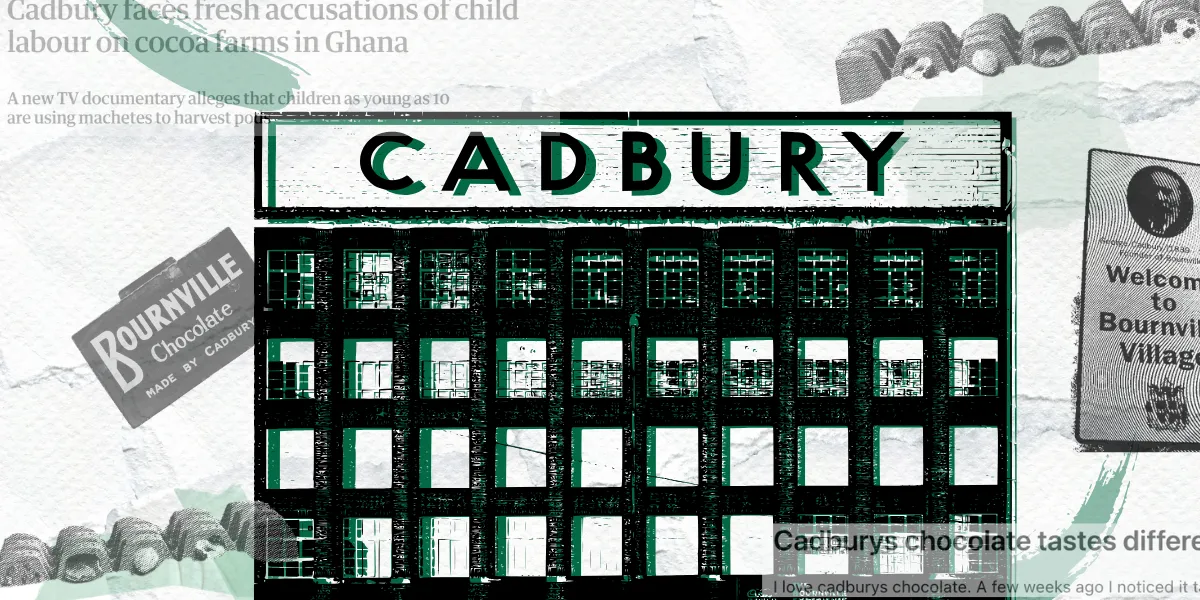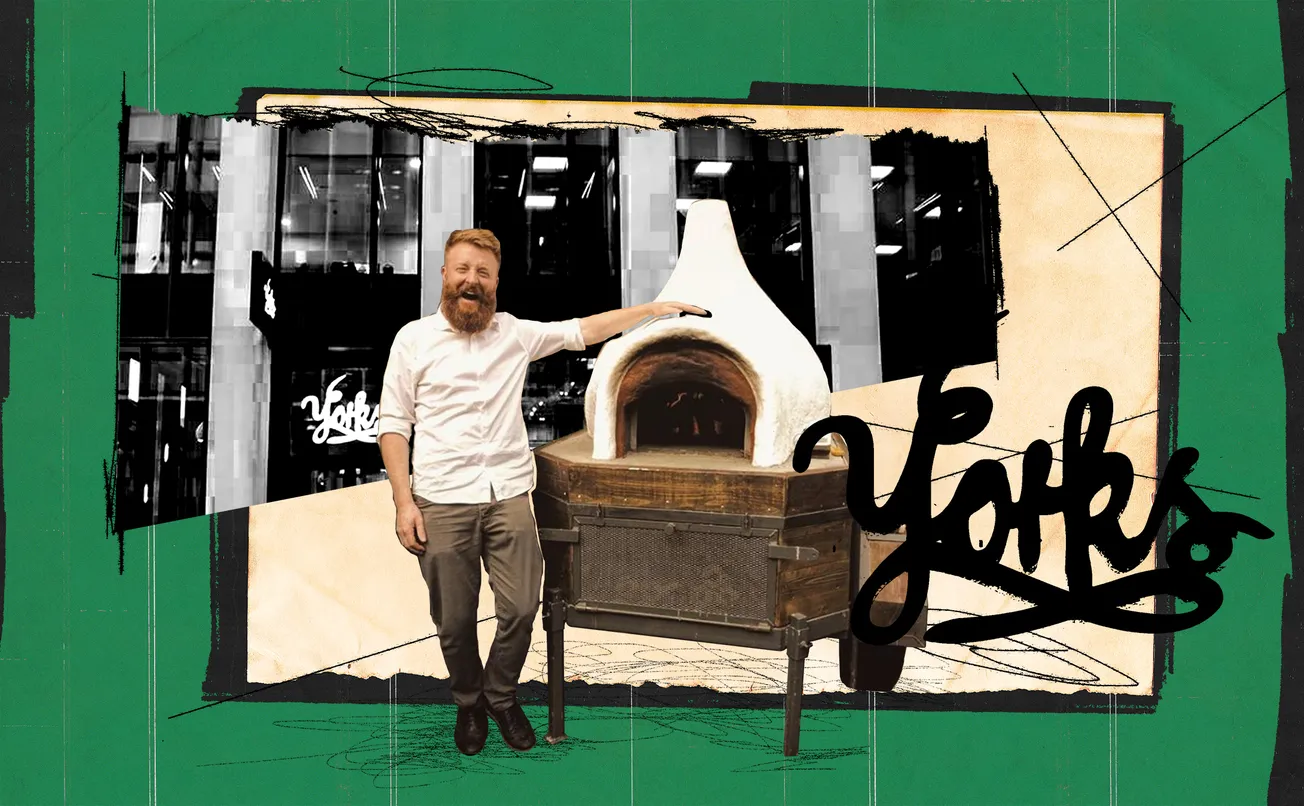Until three years ago, Emma Tighe’s kitchen was painted in a rich, dark, and unmistakably Cadbury shade of purple. The shelves housed mugs in the shape of cocoa beans, old metal chocolate boxes, and egg cups with the Creme Egg logo on. Her collection spilled out in the form of 1920s enamel signs pinned to the walls and Victorian hot chocolate containers stacked above the cupboards. All of it was official Cadbury’s merchandise, of course. “My kitchen was completely dedicated to Cadbury’s,” she says. Over the years, 47-year-old Tighe amassed more than 390 pieces of Cadbury memorabilia; tracking down new additions became an all-consuming obsession.
Growing up in Bournville, Tighe was born into Cadbury’s history. Like many who lived in the red-brick model village — founded by the owners of Cadbury, brothers George and Richard in the 19th century — her entire family worked at the company, including her mum, great-aunt, both grandmothers and great-grandmother. She remembers the thick smell of hot cocoa drifting from the factory’s chimneys during her childhood. “It was a way of life for us,” she gushes. “It was a wonderful, wonderful place to grow up.”
Being from “Cadbury town” is a big part of Tighe’s identity. In 1981, at the age of three, she starred in a Dairy Milk advert, sparking a lifelong obsession with the brand. At Christmas and on her birthday, she was routinely gifted Dairy Milk dispensers and Milk Trays by friends and family. Even now, Tighe is a confessed chocoholic, eating a bar of Cadbury’s — usually a Dairy Milk, a Flake, or a Crunchie — every night before bed. “I’m just completely addicted,” she laughs.
Still, Tighe knows that the public perception of her favourite chocolate brand has changed over the years. In 2010, when Cadbury was sold to the American company Kraft Foods, the decision was met with public outrage. The deal, worth £12 billion, was framed by many as a loss of a cherished British institution. And, despite Kraft’s initial promises to preserve jobs and keep production in the UK, it wasn’t long before redundancies followed and parts of the operation were relocated abroad. The move felt like a betrayal — not just to Cadbury’s employees but to the nation that had grown up with the brand as part of its cultural fabric.
The bad press didn’t stop there.
Birmingham deserves great journalism. You can help make it happen.
You're halfway there, the rest of the story is behind this paywall. Join the Dispatch for full access to local news that matters, just £8/month.
SubscribeAlready have an account? Sign In







